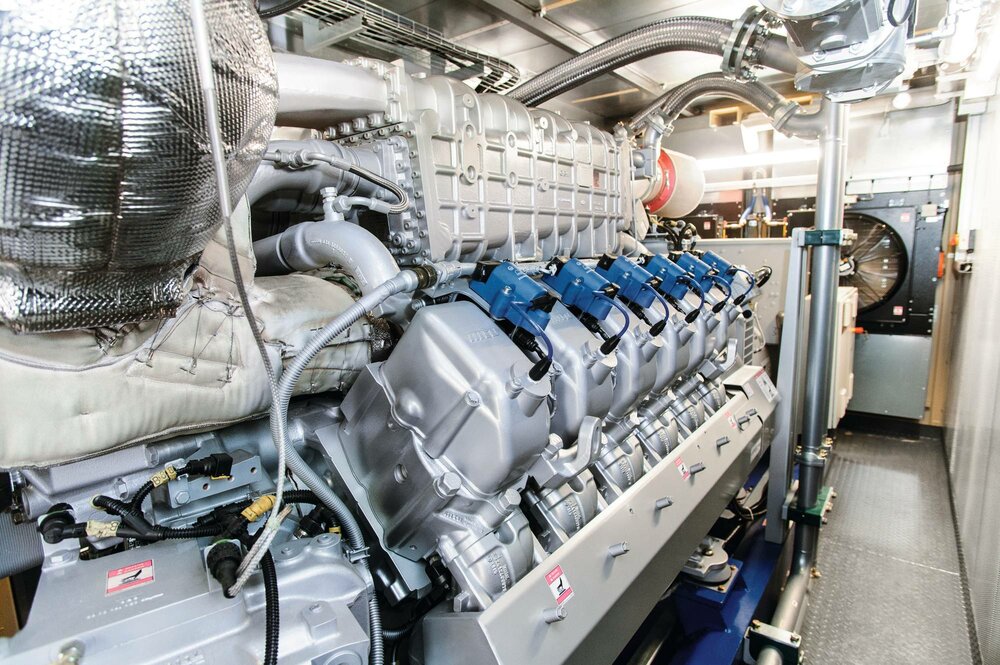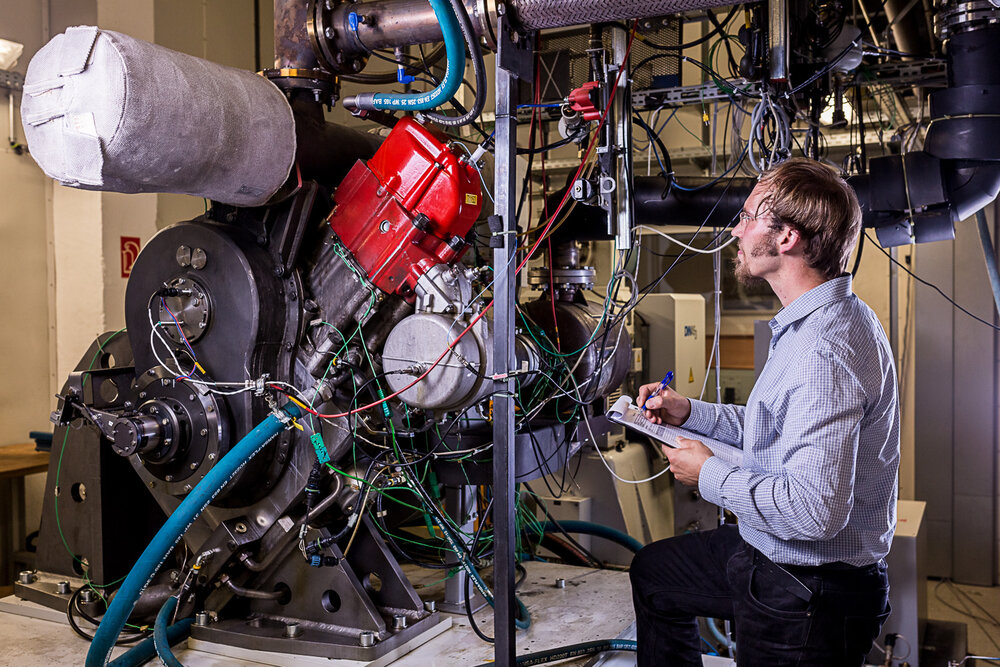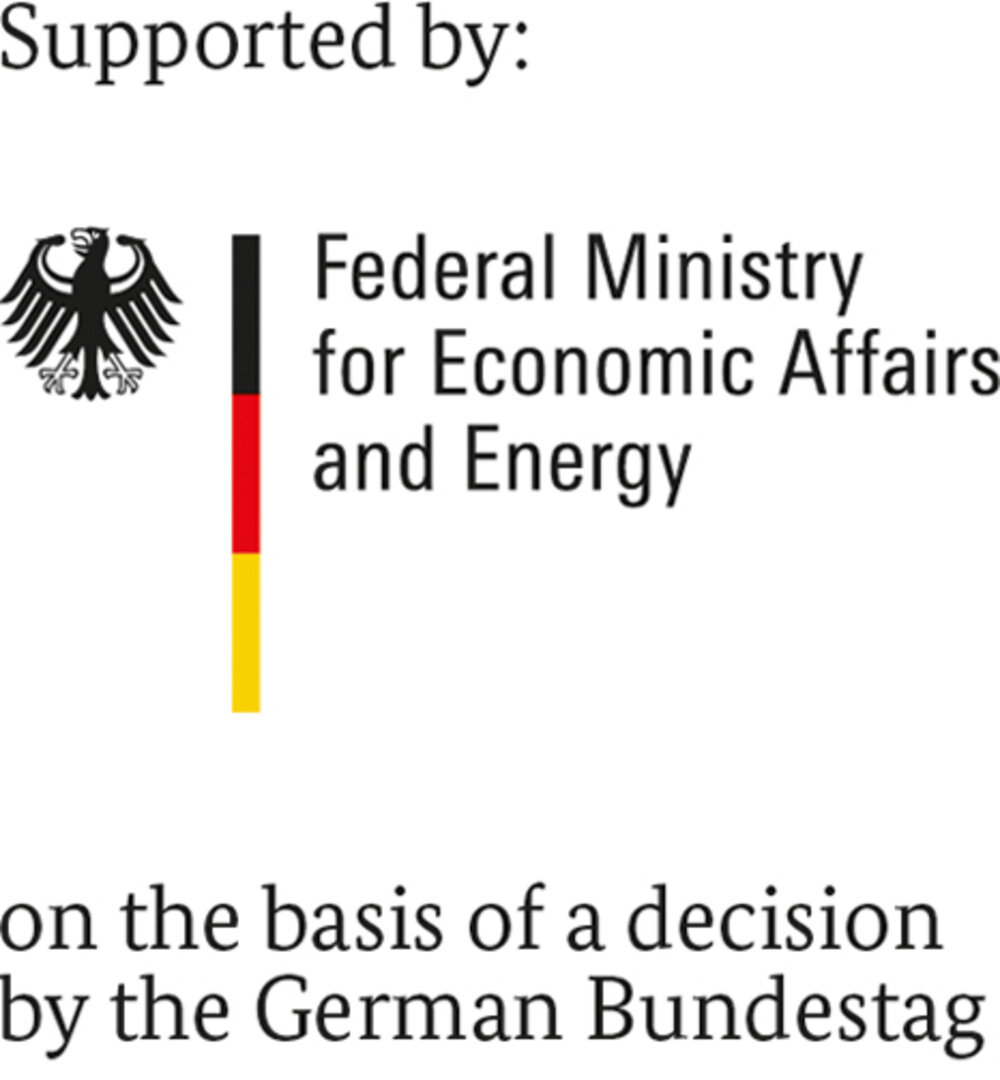MethPower: Flexible power and heat with innovative CHP plants.
One major feature of the energy revolution is the linkage it promotes between different sectors within power generation and supply systems such as electricity and gas grids. Combined heat and power (CHP) plants play an important role at the interfaces between these systems because they can dynamically convert the energy contained in gas into electricity and heat. It is in this area that MethPower is initiating investigations into two new CHP engine concepts both of which are designed to operate with renewable gases – one with RE-methane (methane engine), the other with RE-hydrogen (large hydrogen engine).
MethPower’s aim is to conduct a whole-package evaluation of the two engine concepts in a local power system modeled to include the highest possible level of regenerative energy, energy storage units (electrochemical and based on renewable fuels), CHP plants and consumers. The system will then be optimized with regard to factors such as overall energy efficiency and economic efficiency with elements such as appropriate operating conditions for the engine concepts being determined in the process. Apart from the current circuit, the undertaking will reflect the useful heat generated e.g. for heating hot water and service water.
In order to create realistic simulations of engine behavior and demonstrate the practical feasibility of the two concepts, the MethPower program will initially create each as a single-cylinder engine. With the aid of results from the single-cylinder engine tests, modern computing techniques will be used to conduct detailed evaluation and optimization of the CHP engines. MethPower will likewise produce an evaluation method for the overall system covering the engine and peripheral process technology elements such as fuel production utilizing electric energy. This approach allows classification of both technical and economic aspects of the engines and means that can be assessed within the framework of the energy system.
Methane engine
The first case involves development of a new concept for CHP engines. Instead of the usual natural gas (or diesel / fuel oil) this engine will run on RE-methane. The CO2 emitted by the engine will then be used to synthesize new, renewable methane (methanation) that can itself be used to fuel the engine in its turn. The concept has two critical benefits. First, it emits no CO2 into the atmosphere. And second, such readily available carbon sources are vital for the future cyclical generation of renewable methane.
Large hydrogen engine
The second engine concept under investigation by MethPower is a large-size, Otto gas engine using RE-hydrogen and incorporating external fuel mixture generation. This unit aims to achieve the power density of a natural gas engine with minimum emissions. To further increase efficiency and assess the combustion process more effectively, combustion will be analyzed using an optically fully accessible engine and a 3D CFD simulation will be used for computation purposes. Simulation techniques will also be employed to assess the potential of direct injection for RE-hydrogen and an innovative direct injection system is to be developed.
Essentially, the two engine concepts researched by the MethPower group differ in the fuel used (RE-hydrogen and RE-methane). Subsequently, they will be compared and technically evaluated. As compared with RE-methane, RE-hydrogen offers the fundamental advantage that it takes fewer process steps to generate than it does to synthesize RE-methane. However, there is currently no supply network for hydrogen whilst RE-methane can already be fed into the existing natural gas grid and thus has the potential to gradually replace natural gas. Today, there is still no clear answer to questions about where in the energy system either of these renewable gases might gain ascendancy in the future. The answers here depend not only on technology-related factors but also on national economic issues that are difficult to assess.

Fig. 2: Conventional CHP gas engine (©MTU Friedrichshafen GmbH)

